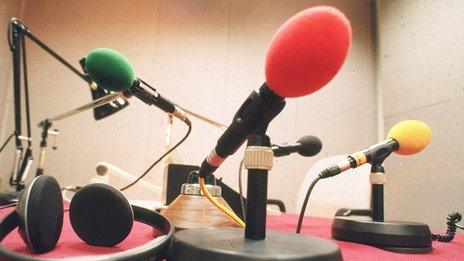'Scotch-Irish' influence on US democracy
- Published
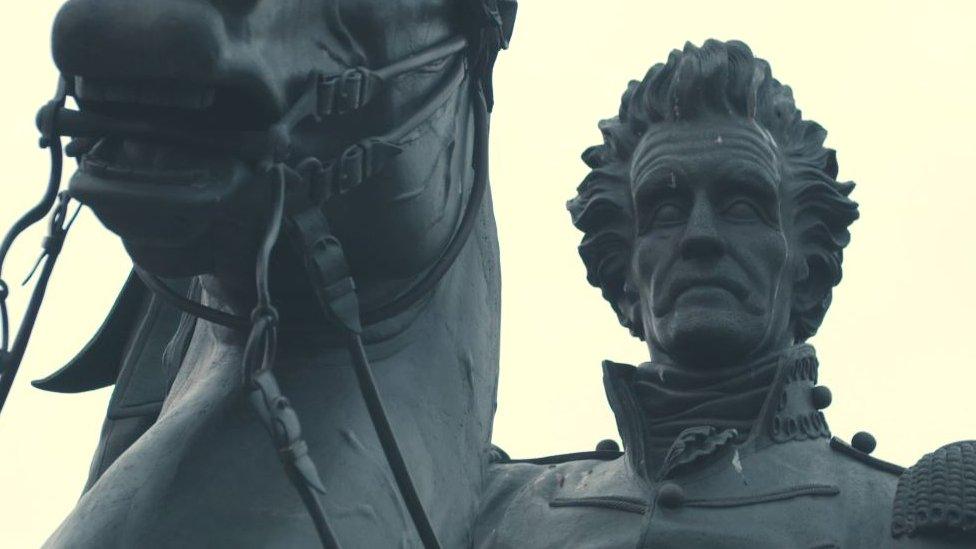
The legacy of US President Andrew Jackson is often cited as having changed the face of US politics
From the War of Independence through to the election of Donald Trump and on into the much anticipated mid-term elections, one group has been to the fore in shaping the ideas of American democracy.
They are often known as the Scotch-Irish.
Often - but not always - as Warren R Hofstra, Professor of History at Shenandoah University, explained.
"The Scotch-Irish, of course, are one of the most important and impactful 18th Century migration groups and the term we use for them varies - sometimes it's 'Scots-Irish', 'Scotch-Irish', 'Ulster-Scots', 'Irish', or 'Irish Presbyterians'.
"When I am talking with people, often a group of students, I'll ask them how they identify themselves ethnically.
"To be Scotch-Irish is very common. Then I'll ask them, what does that mean, Scotch-Irish? And usually they'll think of… a grandparent or great-grandparent, one came from Ireland, the other came from Scotland and they married and all their children became Scotch-Irish.
"Of course that is far from the actual history of these people, but it does speak to that idea that we no longer have a firm grasp of who these people are."
Braggarts and bullies
Despite that, the impact and influence of the Scotch-Irish is very much in play.
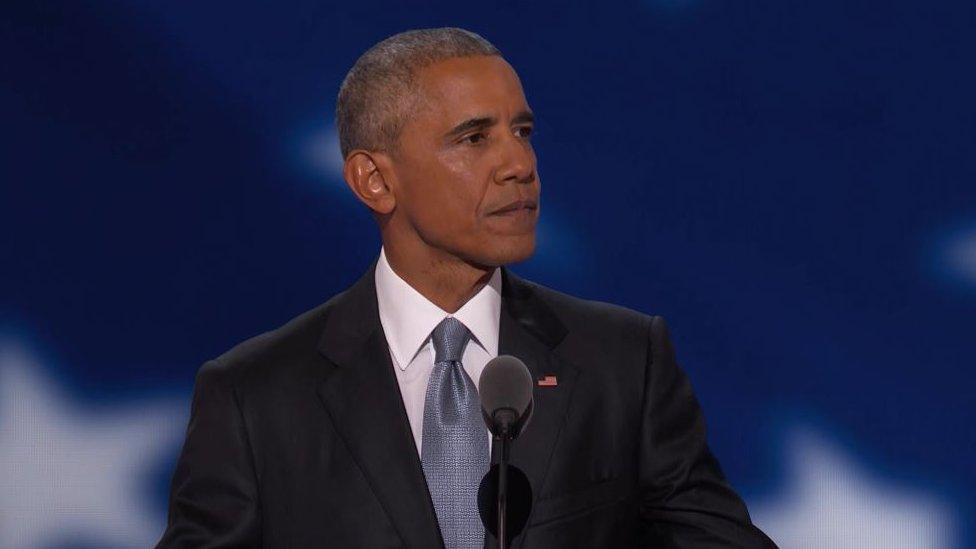
Barack Obama praised Scotch-Irish culture in a speech supporting Hillary Clinton's presidential candidacy
Frances Stead Sellers, a writer at the Washington Post, picked up on it in a speech to the Democratic National Convention by outgoing President Barack Obama.
"Obama looked back to American history and tried to persuade people to vote for Hilary Clinton… and in the middle of it, he suddenly talked about his Scots-Irish grandparents."
Mr Obama said they came from the heartland of the Rust Belt and the Appalachian Mountains, where their ancestors began settling about 200 years ago.
"They were Scotch-Irish, most of them, and my grandparents explained that folks in these parts, they did not like show-offs, they did not admire braggarts or bullies, or folks always looking for shortcuts in life," he said.
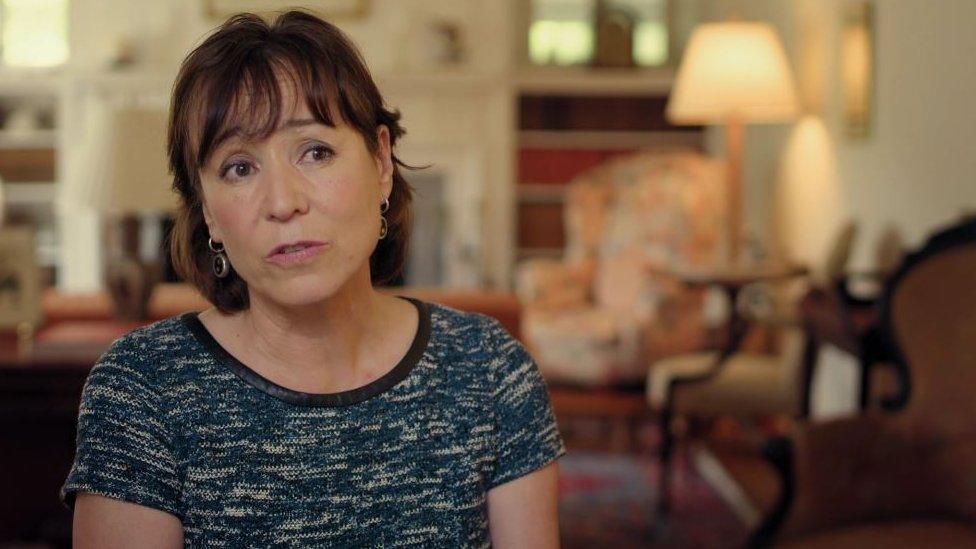
Frances Stead Sellers likened some Scotch-Irish to Davy Crockett, at the forefront of the frontier tradition taking America into the West
Frances Stead Sellers added: "People have been talking about a Southern vote, but there wasn't much awareness of Scots-Irish as a cultural identity. Very few people self-identified as Scots-Irish, but… their cultural footprint is enormous and one that I think Donald Trump realised he could play with."
She said they were the Davy Crocketts, at the forefront of the frontier tradition taking America into the West, but that their significance is often overlooked.
One of the things that attracted them to America was the plentiful supply of land which did not belong to a landlord and which they could pass on to their children.
However, that land was often in the disputed area between European settlement and native American homelands.
It was remote and dangerous, and those who settled there had to have strong resolve and self-reliance.
It is this tradition that both Mr Trump and Mr Obama picked up on in the 2016 presidential election as one they could pitch at in their appeal for votes.
Roots of a system
Former Democratic Senator Jim Webb agrees it is a culture which has almost become almost invisible.
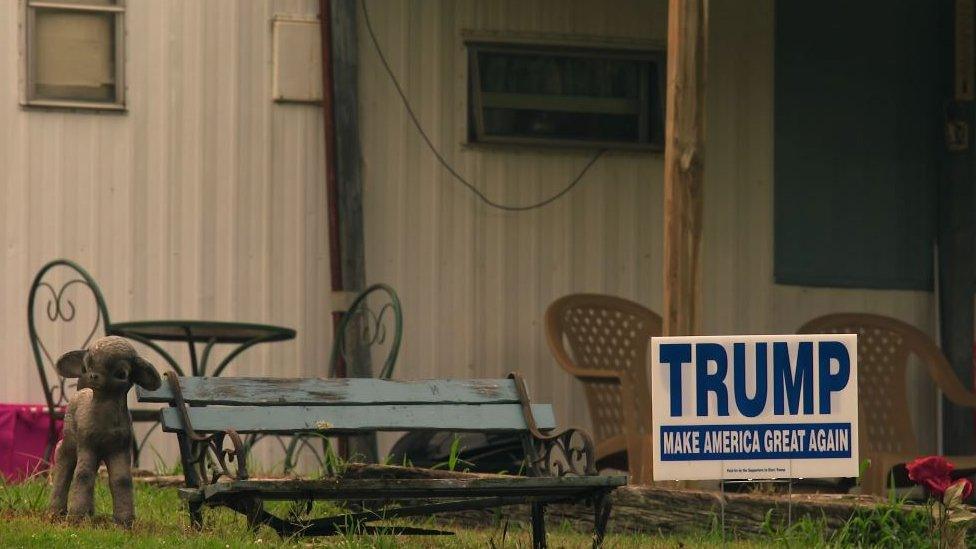
US president Donald Trump has promised a better future for working US citizens
"Yet if you look at what the Scotch-Irish did, the lasting contributions they made, you see it everywhere. You see it most importantly in the form of government that Andrew Jackson and people who succeeded him in office brought - what we call frontier democracy, which actually came right out of the Scottish kirk."
The BBC TWO NI documentary We The People explains the legacy and how it is deep at the roots of the American political system.
Doctor Peter Gilmore, of Carlow University, said it had the classic elements of a suspense story.
"As they say in mystery dramas - means, motive and opportunity. There was a way for people to leave. Given the exigencies of life in Ulster and the economic opportunities in the Americas, they took it.
"It has been said that one can trace the movement of these newcomers from the north of Ireland by plotting the location of Presbyterian churches. It was part of their sense of community. They sought out people to whom they were related, or people they knew back in Antrim, or Down, or Donegal."
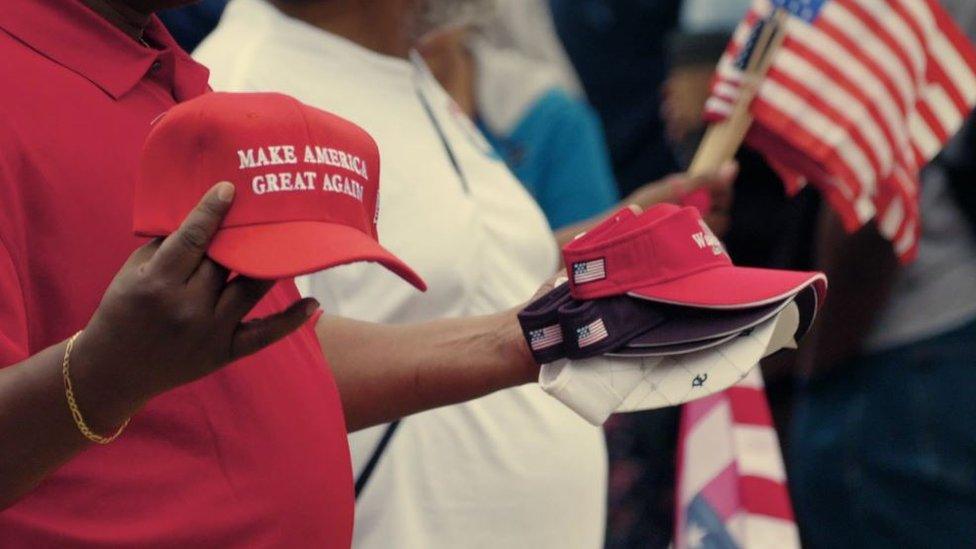
Donald Trump says he is emulating Andrew Jackson's presidency in putting American workers first
When the Declaration of Independence was signed, three of the signatories were born in Ulster.
There have been more than a dozen presidents with roots in that community, including Andrew Jackson, who was born shortly after his parents arrived from Carrickfergus and became president in 1828.
His legacy is often cited as having changed the face of US politics.
In a speech, Mr Trump said: "It was during the revolution that Jackson first confronted and defied an arrogant elite. Does that sound familiar to you?
"He didn't want government corruption, he expanded benefits for veterans, he battled the centralised financial power that bought influence at our citizens' expense.
"He imposed tariffs on foreign countries to protect American workers.
"Wait until you see what is going to be happening pretty soon folks."
One key question is how "what is going to be happening" resonates in the ballot box, showing the impact of Scotch-Irish culture on the electoral system.
"2016 showed that the white southern vote had a cultural footprint, that this was a Scots-Irish footprint," said Frances Stead Sellers.
"Going ahead, we will find out whether that plays out in 2018, and more so in 2020."
We The People airs on BBC Two NI on Sunday, 16 September, at 22:00 BST
- Published12 November 2016
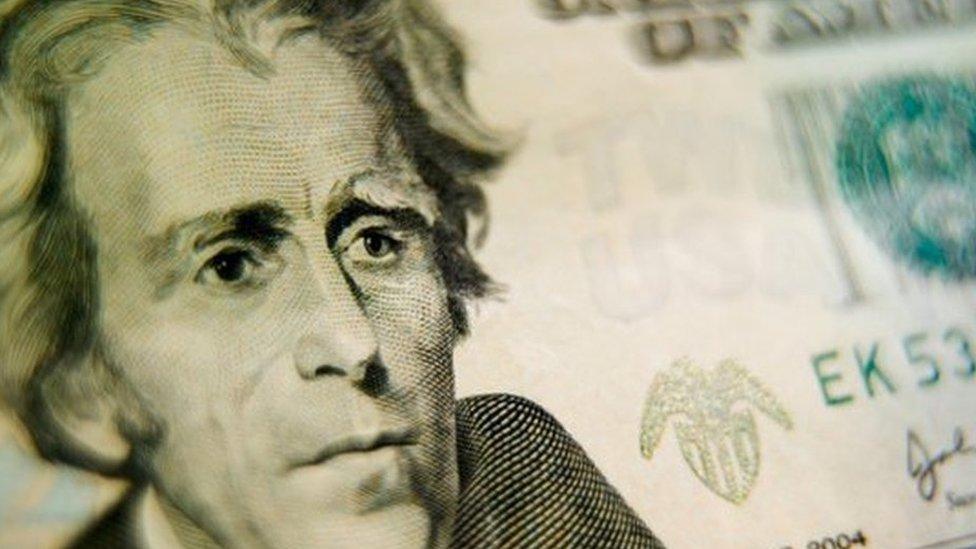
- Published10 June 2013
